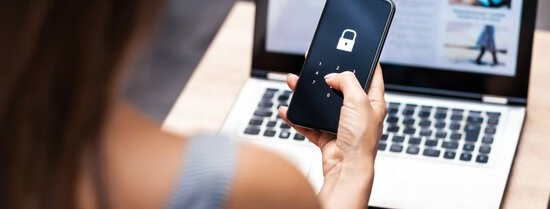This guideline applies from 1 August 2020 to 1 August 2024
Certain conditions are associated with recording, making and publishing images (photos and videos) at Erasmus University Rotterdam (EUR). Both the General Data Protection Regulation (GDPR) and Copyright Act apply to making and publishing images. The privacy of students, staff and visitors is always key.
If you plan to make or instruct someone else to make images at an event or other occasion, you must therefore take the following 5 steps below.
In some cases, EUR has a justified interest in making and publishing images. EUR's interests are then more important than the right to privacy of the data subject concerned. For example, the reporting of (academic) events falls under the freedom of speech or journalism.
Documents
Where possible, participants at an event or those present must be informed that photos are being taken and/or that they are being filmed. This can be done, for example by a privacy declaration, on:
- The registration form for an event.
- A sign by the entrance to the meeting room/area where the activity is taking place.
- A slide on a screen in the meeting room.
- Description of the event on the website/intranet/social media.
A link may be provided to the standard privacy declaration relating to images that is available here. If you deviate from this, for example because the images will also be used by specific non-EUR visitors, or because you want to keep the images for longer, contact the Privacy Officer of your faculty.
To safeguard the privacy of those present, instructions and contracts for photographers/camera crews have been drawn up in the form of an assignment agreement (see here, only in Dutch). These rules are often already used by photographers/camera crews and may be self-evident. However, we advise you to remind them of these rules (again) during the briefing. Here are some instructions that could be agreed.
Staged images:
- Ask models/subjects to sign the consent form in advance. EUR will provide (sufficient) consent forms.
- Ask the photographer/camera crew to record which form belongs to which photo, for example by giving the photo a unique number or by including a project name and referring to it on the consent form. Another approach is to first take a picture of the individual with a name badge, so that it is clear whose image it is. As the client, it is important that you can establish that consent has been given for specific images.
Non-staged images:
- If someone turns away or if it is clear from their body language that they do not wish to be in the picture, respect this and stop filming/taking the photograph.
- If you take a close-up of a person, check later whether they object to the image being used and show them the image, if necessary. Also tell them what the image will be used for (if this is known) and perhaps who the client is. Delete images if requested to do so.
- You might also do the following during your event:
- Do not photograph/film areas that have been assigned to people who do not want to be in the picture (EUR will tell you who they are and how to recognise them).
- Do not photograph or film anyone who is visibly wearing a 'do not film/photograph' button, sticker or other object on their clothing (EUR will tell you who they are and what they are wearing).
Copyright artworks
- In view of copyright laws, do not take pictures of artworks without the consent of the makers. Pictures may be taken if they are part of the background.
Following the introduction of the GDPR, individuals now have more rights over their personal data. Because images sometimes contain personal data, these rights are applicable here. This means that:
- you may object to making and publishing images that contain your personal data;
- if you have given consent to making and publishing images with your personal data, you may always withdraw that consent and ask for the images to be erased;
- you may view the images containing your personal data free of charge.
NB: These rights also apply to hard copies, PDFs and other media that cannot be erased free of charge and/or effortlessly once they have been published. Remember this when choosing the image and preferably choose material for which a consent form has been signed for use in such publications. If you would not want images of yourself be used in that way, someone else may not either.
For employees: More privacy related guidelines and policy documents, see the page on MyEUR.
FAQ
You use this agreement if you want to purchase existing work from a photographer or videographer for the use of Erasmus University Rotterdam.
If you have found a photographer or videographer who will create new work for you, you use a contract for assignment.
This is a standard agreement that guarantees the rights of the work created for you and Erasmus University Rotterdam.
Do you have any questions regarding these agreements? Then you can send an email to: legal.advice@eur.nl
